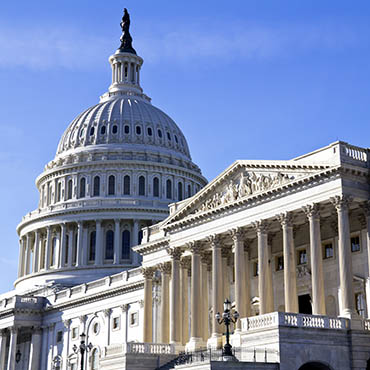White House threatens to veto Senate NDAA
The White House has threatened to veto the Senate version of the annual defense policy bill, citing opposition to key provisions on acquisition and cybersecurity policy, among a litany of other objections.

The White House has threatened to veto the Senate version of the annual defense policy bill, citing opposition to key provisions on acquisition and cybersecurity policy, among a litany of other objections.
The Senate version of the fiscal 2017 National Defense Authorization Act would restructure the Defense Department in ways that haven't been "thoroughly reviewed by experts…and that are likely to make the department less efficient and agile," the Office of Management and Budget said in a statement of administration policy. The White House last month threatened to veto the House version of NDAA in a similarly critical statement.
The NDAA veto threat is not a surprise -- President Obama has done so every year he has been in office. Nonetheless, the divide between Congress and the White House on structuring the Pentagon to adapt to the digital age is striking and will take considerable effort to bridge.
The House and Senate armed services committees have generally used the annual NDAA to incrementally reform how the Pentagon buys weapons and IT. Those reforms have often centered around DOD's powerful acquisition shop - the Office of the Undersecretary of Defense for Acquisition, Technology, and Logistics.
However, the fiscal 2017 NDAA takes a hatchet rather than a scalpel to AT&L, replacing it in part with an undersecretary of Defense for research and engineering, who would be the department's CTO and its top acquisition official.
Scrapping an undersecretary position that has been the focal point for acquisition reform would have untold effects on how the Pentagon bureaucracy functions -- effects that apparently don't sit well with the White House. The Senate bill "would roll back the acquisition reforms of the last two decades and risk returning the department to an era" in which bad cost estimates and other shortcomings sank major programs, the administration said in its statement.
Sen. John McCain (R-Ariz.), chairman of the Senate Armed Services Committee, responded in characteristically blistery fashion.
The administration's statement is a "sorry defense of the status quo: misalignment of authority and accountability, deficits in strategic integration and harnessing innovation, bloated staffs, a broken defense acquisition system, and dependence on Russia for access to space," McCain said.
Adios, OCIO?
The Senate bill would also create the position of assistant secretary of Defense for information, who would serve as both the CIO and the department's top cyber official. That move would "potentially distract" from the current CIO's responsibilities, the White House warned.
"While [the provision] would combine oversight of cyber policy and information technology, it would complicate, rather than improve, the oversight of U.S. Cyber Command and cyber operations…with governance of resources, acquisition, and cyber workforce policy fragmented," the administration's statement said.
There's also the question of the Army intelligence-sharing platform known as Distributed Common Ground-Army. In responding to the House and Senate versions of the NDAA, the White House has defended DCGS-A, which has critics both in the service and on Capitol Hill.
The Senate bill would require the Army to field an intelligence system based on commercial technology that "is substantially easier for personnel in tactical units to use than" the current version of DCGS-A. The White House objected to that provision, saying it appeared to mandate a commercial solution without regard to price and ability to support open systems architecture.
The Senate is considering a slew of amendments to the NDAA this week. The House passed its version of the bill last month with a 277-147 vote.
NEXT STORY: Survey: 'Oversight doesn't love innovation'





